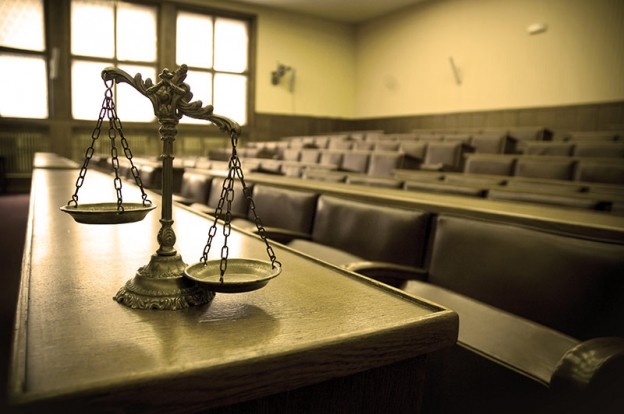An expert on hip-hop culture has noted an uptick in the trend of prosecutors using rap lyrics and videos as evidence of guilt.
The Shooting Death
On December 10, 2016, shots were fired at a “Naughty or Nice Pajama Jam” party being held in the warehouse district of Carson in the Los Angeles area. A 24-year-old partygoer, Davion Gregory, was shot five times. Gregory was brought to the Harbor-UCLA Medical Center and pronounced dead on arrival. Two other people were wounded in the shooting: Travis Harvey-Broome and Kwentin Polk.
Investigators found shell casings from a .40-caliber Glock and a .38 revolver at the scene. There was no video footage of the shooting and no one could identify the shooters. L.A. County sheriff detectives Francis Hardiman and Richard Biddle visited Harvey-Broome and Polk at the hospital, who described seeing a “light-skinned black guy with braids or dreads” in the parking lot, vaguely remembering seeing a black Mercedes SUV and red Mustang or Benz.
Approximately one week later, Hardiman heard the name “Drakeo the Ruler” on a wiretap in an unrelated gang case. Detective Hardiman alleges that he spoke to the victim’s family about Drakeo and they told him that they had also heard rumors about Drakeo being involved with the shooting. This led to an investigation into Darrell Caldwell, a rapper who goes by the name, Drakeo The Ruler.
Darrell Caldwell/Drakeo’s Trial
Drakeo was eventually charged with murder, attempted murder, felony gun possession by a felon, and criminal gang conspiracy in connection with the shooting death of a Davion Gregory.
Drakeo was acquitted of all charges of murder and attempted murder and convicted on a charge of felony gun possession by a felon. The jury was hung on the count of criminal street gang conspiracy. The prosecutors’ theory behind this charge is that Drakeo had ordered the shooter to kill a musical rival, “RJ,” but the shooting was botched and Gregory was killed. As evidence, prosecutors cited a line from Drakeo’s song “Flex Freestyle,” in which he raps, “I’m ridin’ round town with a Tommy gun and a Jag / And you can disregard the yelling, RJ tied up in the back.”
Hip-Hop Culture Expert
Drakeo’s defense attorneys called Erik Nielson to testify as an expert witness in Drakeo’s first trial. Nielson is an Associate Professor of Liberal Arts at the University of Richmond. His research is focused on African American literary and musical traditions with an emphasis on hip-hop culture. Nielson has co-authored two books on the topic, The Hip Hop & Obama Reader and Rap on Trial: Race, Lyrics, and Guilt in America. He is also the author of numerous academic articles, chapters, reviews, and feature articles on the topic.
Nielson has estimated that he has been asked to consult on over 60 cases where prosecutors have introduced rap lyrics or videos as evidence of guilt. Nielson also conducted research with University of Georgia law professor Andrea Dennis that reveals over 500 instances of prosecutors using this tactic.
Nielson explained that the role that he plays at criminal trials is correcting prosecutorial mischaracterizations of rap music. He noted that prosecutors “routinely ignore the fact that rap is a form of artistic expression – with stage names, an emphasis on figurative language and hyperbolic rhetoric – and instead present rap as autobiographical.”
Nielson further explained that this practice is effectively asking “jurors to suspend the distinction between author and narrator, reality and fiction, and to read rap lyrics as literal confessions of guilt. No other art form is exploited like this in court. And yet it’s an effective strategy precisely because it taps into stereotypes about rap music and the young men of color who are its primary creators.”
In Nielson’s opinion, introducing rap lyrics as evidence in criminal trials can be highly prejudicial because it allows prosecutors “to draw on stereotypes about young black and Latino men as violent, hypersexual and dangerous.”
Drakeo is set to be retried on the criminal gang conspiracy charge. If convicted, he faces life in prison.




